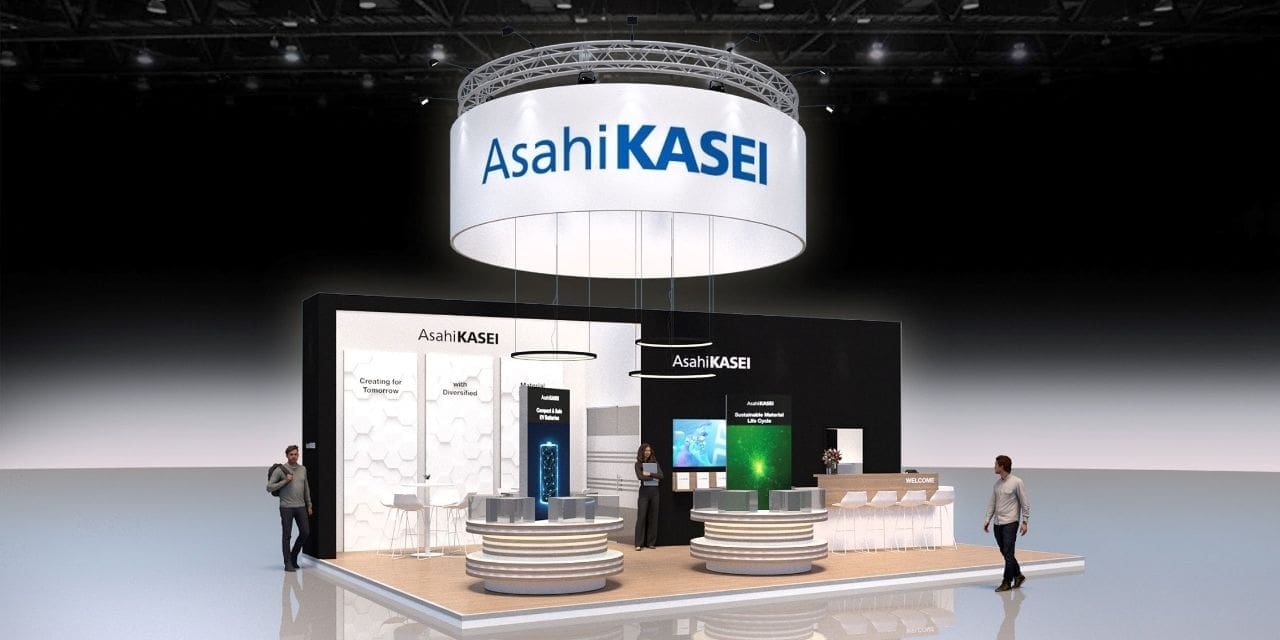Düsseldorf and New York – September 3, 2024 –From October 15–19 in Friedrichshafen, Germany, Asahi Kasei, a Japanese technology business, will showcase its extensive array of diverse material solutions at Fakuma 2024, the world’s premier trade show for industrial plastics processing. Highlights include a revolutionary thermoplastic elastomer for increased automotive interior part recyclability, polymer solutions for heat management applications in EVs, and a cellulose nanofiber composite for high-performance 3D printing.
In three distinct areas—”Compact & Safe EV Batteries,” “Improved Connectivity & Lightweighting,” and “Sustainable Material Life Cycle”—Asahi Kasei will showcase its products and solutions.
The company is going to display the XYRONTM modified polyphenylene ether (mPPE) at the battery island. This material has the lowest ion elution qualities and a high non-halogenic flame retardance, making it appropriate for thermal management applications in electric vehicle batteries. Asahi Kasei will additionally display multilayer cooling pipes at Fakuma that do not need an adhesive coating. These pipes have an outside composed of the company’s LEONATM PA and an interior composed of XYRONTM. Excellent bending, hydrolysis resistance, and low ion elution qualities are provided by this pipe.
Solutions for improved connectivity and HMI
Asahi Kasei is now releasing new grades of its all-around material, XYRONTM, to the European and North American markets in response to the growing need for materials that improve the efficiency of 5G applications. The low dielectric characteristics and excellent non-halogenic flame retardance of this family of high-performance compounds are made possible by the mixing of PPE with other polymers, such as polyphenylene sulfide (PPS) or polystyrene (PS). Utilizing a novel XYRONTM grade, the business has developed a resin antenna prototype in collaboration with the Tokyo Institute of Technology. Over a broad temperature range, this grade provides a consistent, low linear expansion coefficient along with strong heat resistance. This property makes the material perfect for applications involving plating on plastics and replacing metal in precision-required components, such as slotted waveguide array antennas.
In recent years, there has been a steady increase in the requirements for optical devices’ weight and design, ranging from head-mounted displays and smart glasses to vehicle head-up displays. With its nearly negligible birefringence, the transparent polymer AZPTM is surpassing traditional transparent polymers in applications involving polarizing light. Because of its better processability than glass, injection-molded optical components that meet exacting client specifications can be produced on a wide scale.
For automakers, striking a decent balance between usefulness and sustainability without compromising cost competitiveness is a big problem. Asahi Kasei is now creating a specially made thermoplastic styrene block copolymer (SEBS) grade for automobile interior surfaces, which need to have strong haptics and soft touch, in order to meet this challenge. Conventional methods employ distinct materials and production techniques for the skin, foam, and core layers found in door panels, armrests, center consoles, and instrument panels of automobiles. The novel SEBS material can be manufactured in one step using a core back injection molding process, and it can be used for both skin and foam layers.
It is feasible to link to the polypropylene (PP)-based core layer during the same injection molding step or a different one. Extra adhesive layers are not necessary because of the strong chemical connection that exists between all of the layers. The new SEBS from Asahi Kasei helps to improve the recyclability of interior components, streamline the manufacturing process, and use less materials overall.

